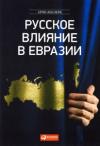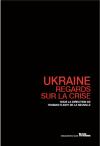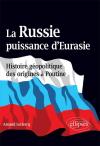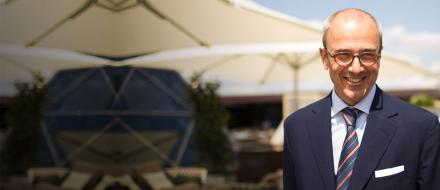Lombard Odier aims to double assets under management in Middle East in next 5 years
Arnaud Leclercq, group managing director of Lombard Odier. The bank with total assets of $393 billion globally has been active in the wealth management business in the Middle East for more than 50 years.
Bank's business in region grew between 10-20% in past 5 years, top executive says
Lombard Odier, Geneva's oldest private bank and one of Switzerland's biggest private lenders, aims to double its assets under management in the Middle East in the next five years as regional economies recover strongly from the pandemic on the back of higher oil prices and a rapid vaccination programme.
The 226-year old bank, which had $383 billion in total assets globally at the end of 2021, up 13 per cent on the previous year, has been active in the wealth management business in the Middle East for more than 50 years, with offices in Dubai and Abu Dhabi.
“The Middle East [has been] one of the fastest-growth businesses for Lombard Odier for the last 10 years,” Arnaud Leclercq, group managing director of Lombard Odier, told The National.
“We want even more because we have reached a certain level of recognition and we believe we have the opportunity to double what we have today.”
The lender's business has grown by 10 to 20 per cent every year in the past five years, Mr Leclercq said.
Regional clients of the bank consist of ultra-high net worth individuals and business families in the UAE, Saudi Arabia, Oman, Kuwait among other countries. Saudi Arabia, the Arab world’s largest economy, is the biggest market for the bank.
“We to want to continue to grow and … we have strong demand for Lombard Odier [in the Middle East] and we fit extremely well with the demand of ultra-high net worth [individuals] in the region,” Mr Leclercq said.
The number of ultra-high net worth individuals in the Middle East is projected to increase 24.6 per cent in the next five years, a report by global property consultancy Knight Frank showed. The region will remain the fourth-largest wealth hub in the world.
The global population of the ultra-wealthy is forecast to rise 27 per cent over the same period to roughly 663,483 from 513,244 in 2019, according to the consultancy's “2021 Wealth Report”.
Growth in the region as a result of higher oil prices, other economic reforms and accelerated vaccination programmes is also expected to help the bank grow its business, Mr Leclercq said.
The Mena region's economies are forecast to expand 4.3 per cent in 2022, from an estimated 3.7 per cent in 2021, amid higher oil output and a sustained recovery in the non-oil sector, Fitch Solutions said in its “Mena Key Themes 2022" report last month.
Oil-exporting countries in the region are predicted to lead growth as their economies expand 4.4 per cent in 2022, from an estimated 3.5 per cent in 2021, Fitch said.
The bank is also “adapting very fast” to the Russia-Ukraine crisis and is investing in asset classes that are insulated from the conflict and have the potential to grow. These include technology, cybersecurity, clean energy and recycling, among others, Mr Leclercq said.
“There are strong uncertainties today because of the war, but our job is not only to protect assets of our clients but also grow them and we have some excellent investment alternatives,” he said.
There are a "number of companies related to new energies, recycling … some of these industrial companies are booming and this is what we offer to our clients”.
The conflict is also accelerating investments in sustainability in Europe, Mr Leclercq said.
“When the price of oil and gas is so expensive, people are investing a lot to change their car to a cleaner car. This is an accelerating factor for sustainability.”
Oil prices are currently trading higher as Russia continues its military offensive in Ukraine. Brent, the global benchmark for two thirds of the world’s oil, was trading at $116.7 per barrel at 10.05am on Wednesday, while West Texas Intermediate was at $110.4 per barrel.
Lombard Odier, however, is reducing its exposure to the euro as well as Europe and is looking more closely at Asia and America as “they are somehow disconnected from the situation”, he said.
“We are also avoiding some high-yielding bonds and I think there will be more default because of the situation.”
The private bank does not have an onshore presence in Ukraine and Russia and its business has not been affected due to the current conflict, he said.
“We don't have any corporate finance that we may lose or trade finance. We have zero [exposure].”








